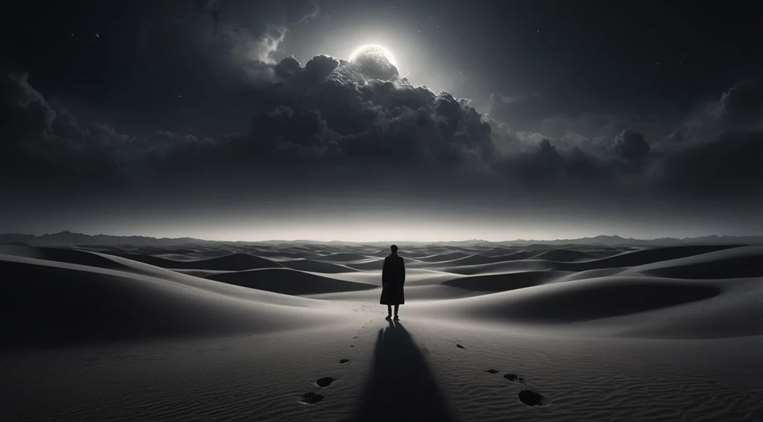The afterlife: a view from science and spirituality

The Concerns about the afterlife have accompanied humanity throughout historychallenging our certainties and feeding our desire to understand the unknown. Questions about what happens after deaththe existence of a spiritual world and the possibility of reincarnation arouse both fear and optimism.
To explore this connection between beliefs about the “beyond” and its impact on mental health, EL DEBER spoke with psychiatrist and psychotherapist Carlos Alberto Molina Jaro, specialized in the Institute of Psychiatry of the University of San Pablo and professor at the UCB in the subject of Mental Health.
He explained that beliefs about the “afterlife”, whether religious or spiritual in nature, can have a positive impact on mental health. “There are studies that show that “Believing in something beyond death can be a protective factor against anxiety and depression.”he stated. People who see death as a transition to a new stage, rather than a definitive end, tend to face it with greater serenity.
However, for those who do not hold a belief in life after death, the perception of death can generate greater vulnerability to negative emotional states, such as fear or depression. “Those who do not believe in an afterlife can feel death as a definitive threatwhich increases the risk of developing depressive symptoms by seeing life as something finite and irremediable,” added the professional.
According to this psychiatrist, one of the keys to an emotionally healthy life is the relationship that people establish with their finitude. The fear of death is one of the most powerful drivers of human existence, but it can also be a catalyst for living a fuller life.
“Become aware that our life has a purpose forces us to rethink what is really importantto get out of ‘autopilot’ and focus on enjoying our relationships, our achievements and the time we share with those we love,” Molina explained.
Also reflected on how many people live on automaticas if they would have hundreds of years ahead of them, until one day they face the reality of how much time they have left. “Sometimes we work excessively and realize that we are not sharing with those we love or enjoying what we have achieved,” he added.
ANDThis reflection on finitude is also key to avoiding dark or ghostly visions of death.which only generate more psychological concerns and distance us from a full and conscious life.

The different cultural and spiritual perspectives
The way people perceive death and what might happen afterward is deeply influenced by cultural and spiritual beliefs. ANDIn many cultures, death is seen as an integral part of the cycle of life.
Some religions, such as Christianity, propose the idea of heaven and reunion with loved ones, while beliefs such as Hinduism or Buddhism contemplate reincarnation. “It will depend on each person’s personal belief,” commented the doctor. “For some, the grandfather can reincarnate into the grandson, while others believe in a integration with supreme energy”, he noted.
For those who have faced death up close, near-death experiences also offer an interesting perspective. “There are documented cases of people who have been in a coma and when they wake up they can describe what was happening around them, something that, from a medical point of view, should not be possible. These experiences They invite us to reflect on what we still don’t know about death and existence.“said the psychiatrist.

Grief and personal development
The process of duel It is also deeply affected by beliefs about death. According to psychiatrist Elisabeth Kübler-Ross, grief goes through several stages. However, Grief can be more bearable when there is a belief in an afterlife. “For many people, knowing that their loved one is in a better place or that they will meet again gives them enormous peace,” explains Molina.
The renowned psychiatrist Kübler-Rossoriginally from Switzerland, proposed a five-stage model of grief that describes how people typically cope with the loss of a loved one. These stages are denial, anger, bargaining, depression and acceptance.
For Kübler-Ross: ANDIn the first, denial, the person resists accepting the reality of the loss, while anger arises as an intense emotional response to the injustice of the situation. Negotiation involves seeking ways to reverse or avoid loss, usually through promises or agreements with divine forces. Depression manifests itself as deep sadness and resignation in the face of loss, and finally, in acceptance, the person manages to find peace and balance with the new reality. Although These stages are not linear and vary according to each individual, they offer a useful structure to understand the grieving process.
Some of this specialist’s books are: On Death and Dying (1969), On Grief and Pain (2005), The Wheel of Life (1997), Death: A Dawn (1984), among others. In his bibliography there are several books that address grief.
Finally, Dr. Molina highlighted that reflection on death can lead to greater personal and spiritual development. “Imagine that you have 48 hours to live. You would probably put aside your cell phone and spend more time hugging your loved ones, looking them in the eyes, saying more ‘I love you’. Reflecting on our finitude can help us value each moment more,” he explained.
The topic of the “beyond” continues to be an unfathomable mystery for humanity, but according to Dr. Molina, Combining science with spirituality can be the key to facing the end of our existence in a healthier way.





